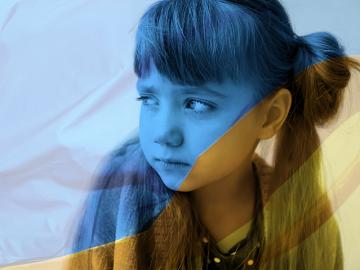FRA: Children who fled Ukraine face rights challenges in the EU

The EU Fundamental Rights Agency's (FRA) latest bulletin focuses on the impact of the massive displacement caused by Russia's aggression against Ukraine, particularly on the 1.3 million children among the 4 million displaced individuals now residing temporarily in the European Union.
The bulletin delves into the challenges these children face and suggests ways to protect their fundamental rights and best interests. It highlights several areas of concern, including the tracking of displaced children, access to education and mental healthcare, and about children evacuated from Ukrainian institutions.
The EU's Temporary Protection Directive grants rights to those who sought refuge in the EU from Ukraine, with specific provisions for children, such as access to medical care and the right to education under the same conditions as local children. To enhance the protection of these children, the bulletin identifies key areas that require attention:
-
Preventing further educational setbacks: The war disrupted the schooling of many children, with a risk of falling further behind. Schools also grapple with integrating additional Ukrainian pupils, addressing this through intensive language and integration classes.
-
Providing healthcare and counseling: Traumatized by the war, many children require healthcare and social support. However, service availability varies, especially in Member States with strained national systems. Language barriers and limited mental health support complicate matters.
-
Safeguarding unaccompanied and separated children: Some Member States established specialized teams to assist unaccompanied Ukrainian children. Ukrainian embassies facilitated the recognition of Ukrainian guardianship documents. Nonetheless, existing challenges in legal guardianship for unaccompanied asylum-seeking children persist.
-
Advocating for deinstitutionalization: Children evacuated from Ukrainian institutions often ended up in large, inadequate facilities. The EU should promote community-based, personalized care for these children, with child protection authorities playing a crucial role.
-
Supporting children with disabilities: Challenges in accepting disability documentation from Ukraine limited support for children with disabilities. Some Member States initiated targeted support programs. Ensuring accessibility, inclusion, and additional support for these children should be a priority.
-
Registering children: Inconsistent data and registration approaches across Member States hinder effective and targeted support for Ukrainian children in their countries.
FRA Director Michael O’Flaherty emphasized the perpetual uncertainty faced by many of these children, who have experienced a global pandemic, a violent invasion, and relocation to a new country. He emphasized the importance of anchoring their future in existing EU and international laws.

